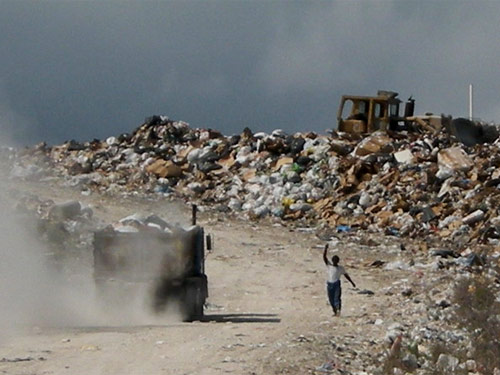As the government continues to promote efforts to conserve energy, Minister for the Environment Earl Deveaux revealed that Bahamians spend more than one billion dollars annually on electricity.
“The cost of supply of energy in The Bahamas represents significant challenges and opportunities for all residents,” Deveaux said as he announced National Energy Awareness Week at the Police Headquarters yesterday morning.
“The Bahamas Electricity Corporation (BEC) spends in excess of a quarter of a billion annually to produce electricity. Collectively Bahamians spend over a billion dollars to light their homes and businesses, to cook, wash, dry, to cool their homes and workplaces and to heat water.”
National Energy Awareness Week will take place during the week of November 4 under the theme “Public/Private Partnership in Energy Conservation”. The purpose of the initiative is to raise the awareness of the importance of energy conservation, promote the wise use of energy, and to promote ways to avoid energy waste, Deveaux said.
This awareness initiative comes as Bahamians grapple with high electricity bills. It had been expected, however, that electricity rates would decrease this month.
But even with higher electricity costs, Deveaux said Bahamians in general have done little to curb their practice of high electricity consumption.
“We’ve been having rather cool weather recently after a summer of severe blackouts. Curiously in spite of the cool weather, how many Bahamians have adjusted the temperate on their air conditions, especially in their work places where they do not have the direct responsibility of paying the bill? Indeed what is our awareness of our general energy use? As an example, just a two degree increase in the temperature results in up to a four to six percentage increase in savings. Turning off computers and other unused energy devices in your homes and businesses can significantly reduce energy consumption.”
Deveaux said the heating of water accounts for 25 percent of average electricity load in Bahamian households. “We must make a permanent adjustment in behavior, both in how we use energy and how we get it,” he said.
Deveaux said the time has come for Bahamians to choose an alternative energy source, as was noted in the reports that were commissioned by the National Energy Policy Committee.
The latest report – The Bahamas National Energy Policy 2010 – gives recommendations on how the government can conserve energy in The Bahamas, and what it can do to promote the development of renewable energy.
The report states that the electricity sector is presently facing three major challenges: The sector’s high dependence on imported fuel, BEC’s financial constraints and an expected increase in the country’s electricity demand in the medium term.
The government is considering reducing the dependency on imported oil by tapping renewable energy sources, waste-to-energy sources and improving and ensuring the quality of the electrical supply.
According to the report, possible renewable resources which can be utilized in The Bahamas include bio-energy, solar (hot water and power generation by photovoltaic systems), wind, ocean energy, and waste-to-energy at residential, commercial, industrial and utility scales.
The report also acknowledged that the demand for electricity is projected to grow over the next five years, mainly due to large, new private tourism investment projects. As a result, the report indicated that electricity expansion costs will be high and financing will be a challenge.
The report further notes that The Bahamas’ dependence on imported fuel has already shown tremendous growth in the last several years.
“A comparison of the Central Bank oil imports for local consumption and the estimated tourism expenditures between 2001 and 2008 reveals that the percentage of funds repatriated to purchase oil for local consumption grew from 16.6 to 26.7 percent over the period. The value of oil imports grew from 273.3 million to 1.147 billion Bahamian dollars over the eight-year period,” the report said.
Krystel Rolle
Guardian Staff Reporter
krystel@nasgaurd.com



